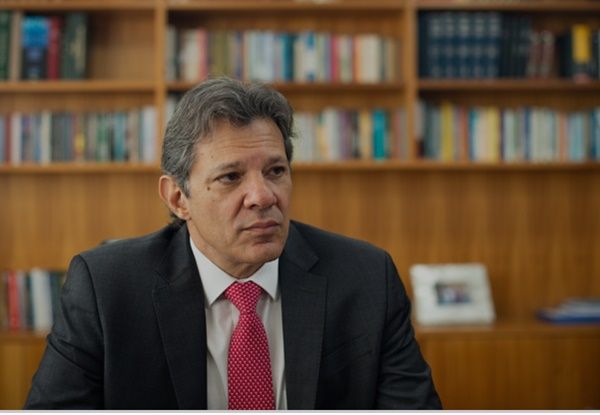
Treasury Minister Fernando Haddad has announced a significant crackdown on unregulated gambling sites in Brazil, primarily online casinos and sportsbooks.
The National Telecommunications Agency (Anatel) will block access to between 500 and 600 unauthorized gambling platforms in the coming days. This action comes as part of the government’s broader effort to regulate the gambling industry following the introduction of the “Bets Law” in December 2023.
Online poker is expected to continue, but online casinos and sportsbook operators must cease operations from October 1 unless they have applied for licensure for the regulated market, which is anticipated to go into effect on January 1, 2025. Brazilian operators must adapt quickly to remain in the market, and players and punters should be diligent about where they keep their gambling funds. Haddad has also urged users with funds in offshore online casino sites to immediately request refunds, warning that money left in blocked accounts could be permanently lost. He emphasized the urgency of the situation: “If you have money on these betting sites, ask for a refund now because you’re entitled to get your money back.” He drew comparisons to Anatel’s recent blocking of X (formerly Twitter) in Brazil, which occurred after a court order, where hundreds of thousands of X users lost access to their accounts.
When the “Bets Law” came into effect, companies operating in Brazil had until October 1 to regularize their status and receive authorization under the “bet.br” seal. After this deadline, unregistered platforms can no longer operate in the country. As of January 1, 2025, only authorized companies will be permitted to participate in the market.
To date, the government has received 113 authorization requests from 108 companies seeking to operate in Brazil’s gambling sector. This number exceeded initial expectations, leading the economic team to increase its projected tax revenue from the sector to R$3.4 billion for 2024, with each operating license costing R$30 million. However, not all applicants are guaranteed approval.
Haddad outlined several measures aimed at tightening control over gambling activities in Brazil. One key move is banning the use of credit cards and Bolsa Família social program cards for gambling transactions. This comes after a Central Bank (BCB) study revealed that in August alone, 5 million Bolsa Família beneficiaries transferred R$3 billion ($550 million) to gambling platforms via PIX, representing 21% of the government’s total payouts for the program that month. The credit card ban was initially scheduled for early 2025 but may be brought forward to October 2024. For now, players are left with debit payments, PIX, or TED. However, even this may change as Febraban (Brazilian Federation of Banks) announced that they’d look into restricting the use of PIX in gambling sites following the BCB study that highlighted the high volume of transactions carried out by the payment processor. PIX restrictions would likely follow the model of current night restrictions with an extension also to cover daytime for a 24/7 limitation.
According to Mayara Maia, editor and casino expert at Brasilcasinos.com.br, an online casino review site with insights into the operations of iGaming companies in the country, many operators have voluntarily blocked credit card payments to comply with the looming restrictions. In the same way, she expects most operators to remove PIX voluntarily; some already have, and there are reports of brands that have it available but can’t process PIX deposits as of October 2.”
Furthermore, the government plans to impose stricter regulations on gambling advertisements, which Haddad described as “out of control.” He will meet with advertising regulatory bodies to discuss curbing sports betting promotions, with the aim of introducing oversight similar to the restrictions currently in place for tobacco and alcohol advertising.
In a recent interview with CBN Radio, Haddad criticized the previous administration for its failure to regulate the rapidly growing online gambling industry, which has contributed to significant social impacts, including gambling addiction and financial harm to vulnerable populations. President Lula has called for a ministerial meeting involving the Ministries of Finance, Social Development, Health, and the Civil House to address issues such as money laundering, gambling addiction, and payment methods in the iGaming industry.
The gambling industry’s growing influence in Congress has led to victories in the ongoing regulation process. Lobbyists are now pushing for further legalization efforts, including the approval of bingos and the traditional “jogo do bicho.” The government faces the challenge of balancing economic interests with the social concerns associated with gambling. The coming six months will be critical in determining the effectiveness of these new measures in reshaping the country’s iGaming landscape.
| Disclaimer: Opinions expressed here are those of the writers and do not reflect those of Peacefmonline.com. Peacefmonline.com accepts no responsibility legal or otherwise for their accuracy of content. Please report any inappropriate content to us, and we will evaluate it as a matter of priority. |
Featured Video